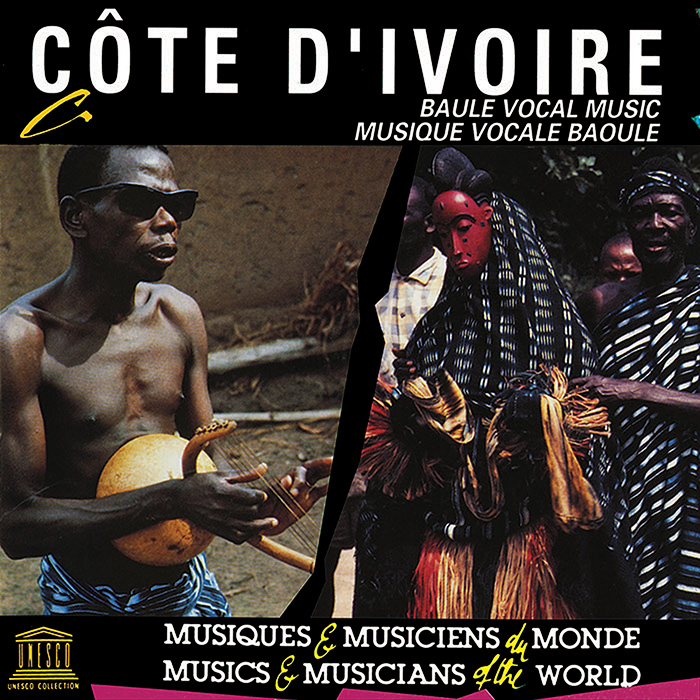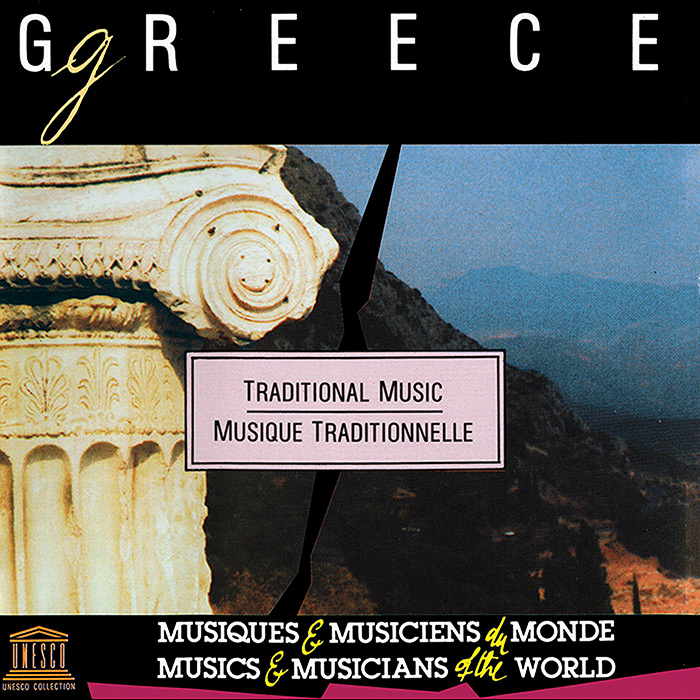-
UNESCO Collection Week 9: Voices of Greece and Côte d'Ivoire
Week 9 of the UNESCO Collection of Traditional Music features two nations competing in the World Cup this week: Greece and the Ivory Coast. Here, however, we focus on their music with the reissues of Traditional Music of Greece and Côte d’Ivoire: Baule Vocal Music.
GUEST BLOG
By Mike Janssen
Soccer teams from Greece and Ivory Coast face off this week, coinciding with the Smithsonian Folkways reissue of recordings from the two countries as part of its UNESCO Collection of Traditional Music series. These snapshots of traditional music from two cultures bring us a wide spectrum of human voices, along with instrumental contributions fraught with just as much deep feeling.
Listening to some of the recordings from Côte d’Ivoire: Baule Vocal Music; it may seem that something is missing. This would be the visual element of dance, the setting in which many of these songs were recorded. As many as twenty voices at a time, men’s and women’s, weave together and counter each other over skittering beats. We hear the voices, drums, rattles, and scrapers that make up the soundtrack to the dances, but we can’t see the masked and costumed dancers bringing the complicated rhythms to life. (Thankfully, you can find video examples online by searching for "Pays Baoule")Amid this album’s frenetic vocal performances, a more understated one stands out. Its assured rhythm is more straightforward, accompanied by the solo voice of Kwadio Wafi. As he plays a harp-lute called an aloko, Wafi shares the tale of Queen Aura Poku, a pivotal figure in the story of the Baule. As the legend goes, the Baule split from the Akan people of neighboring Ghana in the 18th century “after a quarrel of succession.”1 When the refugees arrived at a river, a diviner recommended the sacrifice of a boy. Aura Poku threw her son into the water so that her people might cross.
Wafi tells this story over a solid riff laid down on his aloko as accompanying percussionists strike iron tools used to uproot palm trees, the beat crisscrossing Wafi’s muted strings. The sounds hint at the repetitive rhythms that Nigerian superstar Fela Kuti brought to a global audience in the 1970s, or even at of one of Kuti’s influences, James Brown.
Wafi’s back story is as intriguing as Aura Poku’s. The liner notes tell us that he took up his instrument after two dwarf spirits told him to hang himself. He followed their advice only to be found and cut down by his neighbors, at which point a diviner advised Wafi to take up his paternal uncle’s instrument. I’m glad my own path to playing banjo was less arduous.
The performances of Traditional Music of Greece likewise hark back to story and myth. “Mountaineer’s Song Followed by a Mantinades” resembles “the Dionysiac mystic chants of the ancient world,” according to the liner notes. On these recordings, the voice of the soloist dominates rather than the communal polyphony of the Baule ensembles. With the first track, “Miroloi,” a throaty, passionate clarinet erupts into hypnotic riffs. On “Shepherd’s Song,” clarinetist Leonidas Koufoianis navigates a modal melody, climbing into higher and higher registers.AudioFor a parallel, listen to jazz saxophonist John Coltrane as he gets going at the beginning of A Love Supreme (iTunes | spotify)—a composition also noted for a modal melody. What if Coltrane and Koufoianis went toe to toe in a cutting contest of Greek and African-American fusion? The contest might transport the listener to a borderland between northern Greece and an Ivorian village—and it would certainly be as riveting as a soccer match.
Mike Janssen is digital editor of Current, a trade publication covering the business of public media. He also plays banjo in the Washington, D.C., band, The Boundary Stones.
Twitter | Bandcamp
1 Hugo Zemp, liner notes to Côte d’Ivoire: Baule Vocal Music, UNESCO Collection of Traditional Music, 1967, compact disc.
UNESCO Collection Week 9: Voices of Greece and Côte d'Ivoire | Smithsonian Folkways Recordings



